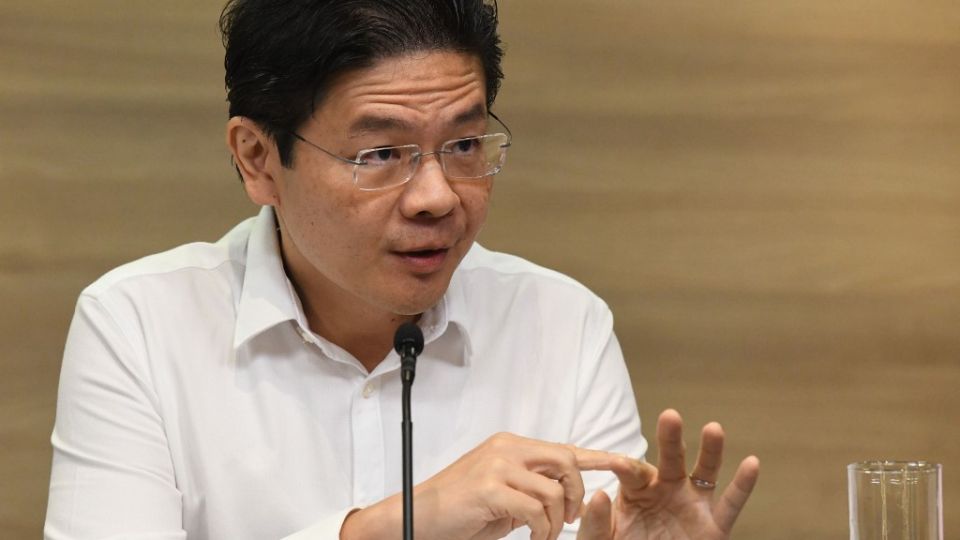April 22, 2022
JAKARTA – Since the establishment of ASEAN on Aug. 8, 1967, Singapore has been one of the anchors of the regional grouping along with other founding member countries Thailand, Indonesia, the Philippines and Malaysia.
In particular, the triangle connection between the leaders of Indonesia, Malaysia and Singapore is often described as the reflection of ASEAN’s face. They have demonstrated leadership in punishing Myanmar’s junta leader Gen. Min Aung Hlaing for arrogantly breaking his promise to ASEAN leaders.
Singapore’s Prime Minister Lee Hsien Loong has been in power since 2004, and therefore has deep knowledge and strong personal relationships with other ASEAN leaders at various levels. Even before assuming the post, his predecessor Goh Chok Tong gave him extensive access to ASEAN as deputy prime minister.
Lee’s father Lee Kuan Yew, Singapore’s founding father and first prime minister, also mentored him for years not just to lead the city-state, but also to become a leading player in the regional trading bloc.
Singapore is tiny in terms of size and population but gigantic in terms of economic power. It is a destination of foreign direct investment and sets a world standard in clean governance. It is also among the wealthiest nations in the world.
Therefore, Singapore’s stability is also instrumental in the growth of the regional economy because of its role as one of the world’s top financial hubs.
At the age of 70, PM Lee needs to make it clear to neighbors near and far who will succeed him. And the potential next prime minister must familiarize himself as early as possible with the neighboring countries, just to avoid a generational gap between the older and younger generations of regional leaders.
Just recently Lee revealed incumbent Finance Minister Lawrence Wong, 49, as his successor. The announcement, however, has received a lukewarm welcome at home and in other ASEAN members. Lee will only transfer the power in 2025 and there is the precedent that Lee dismissed his heir-apparent due to a poor election showing of the ruling People’s Action Party (PAP).
It is also possible that Lee is not ready to leave politics yet. A similar situation also happens in other ASEAN countries, where democracy is a luxury.
Wong is expected to become Singapore’s fourth generation (4G) leader, after the late Lee Sr., Goh and Lee Jr. Wong will bear the responsibility to lead the PAP to a majority win in the general election in 2025, which will be the final and most difficult leadership test for PM Lee.
Wong came to public attention because of his role as the co-chair of the government’s COVID-19 task force along with the 52-year-old health minister, Ong Ye Kung.
“The plan is for Lawrence to succeed me as PM, either before or after [if the PAP wins] the next general election. It is due in 2025 and will surely be a tough fight,” Lee said in his social media post on Saturday.
In a press conference, Lee said he would hand over the power to Wong “once he is ready”. Lee did not say when he named Wong his deputy and who will be in charge of leading the PAP in the 2025 election.
The selection and grooming of Singapore’s leaders look to follow the textbooks widely used by global corporations in preparing managerial succession. There is almost no surprise because everything is perfectly prepared.
The country’s first PM Lee Kuan Yew relinquished the post to his deputy Goh in 1990 at the age of 67 years old. Lee then became a senior minister and later a minister mentor. He died on March 23, 2015.
Goh ruled Singapore for 14 years until 2004, when he transferred the PM’s post to his deputy Lee at the age of 63 years old.
PM Lee started to prepare his successor in 2016, or one year after his father’s death, with six candidates, all of them ethnic Chinese men and non-Muslims. As of November 2018, only then finance minister Heng had passed the probation. But in April 2020 he stepped down following a poor election result in his constituency.
How about the welfare of Singaporean leaders? The remuneration for a Singaporean PM is lucrative, but also very demanding. But even after a 36 percent reduction compared with the 2010 rate, PM Lee remains the world’s highest-paid head of government with an annual income of US$1.6 million, followed by Hong Kong chief executive Carrie Lam and United States President Joe Biden at $672,000 and $400,000 respectively.
Indonesian President Joko “Jokowi” Widodo receives only Rp 736 million ($51,600) annually or Rp 61 million per month.
Indonesians often pride themselves on being more democratic than Singapore. But many of them pretend not to know that the city state ranks fourth in the world’s anticorruption index while Indonesia ranks 96th.
Stability has long been one of Singapore’s major trademarks, leading to it being consistently chosen as one of the world’s most attractive destinations for foreign direct investment. It has also become one of the world’s most important financial and technology hubs.
Wong only has three years to prepare himself for the transfer of power, but also for his future role as an ASEAN leader. The group needs to know more about him, as he is still little known in the region.


